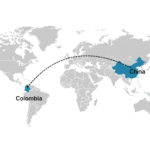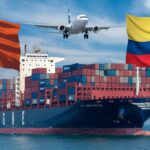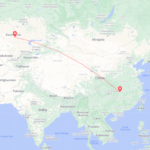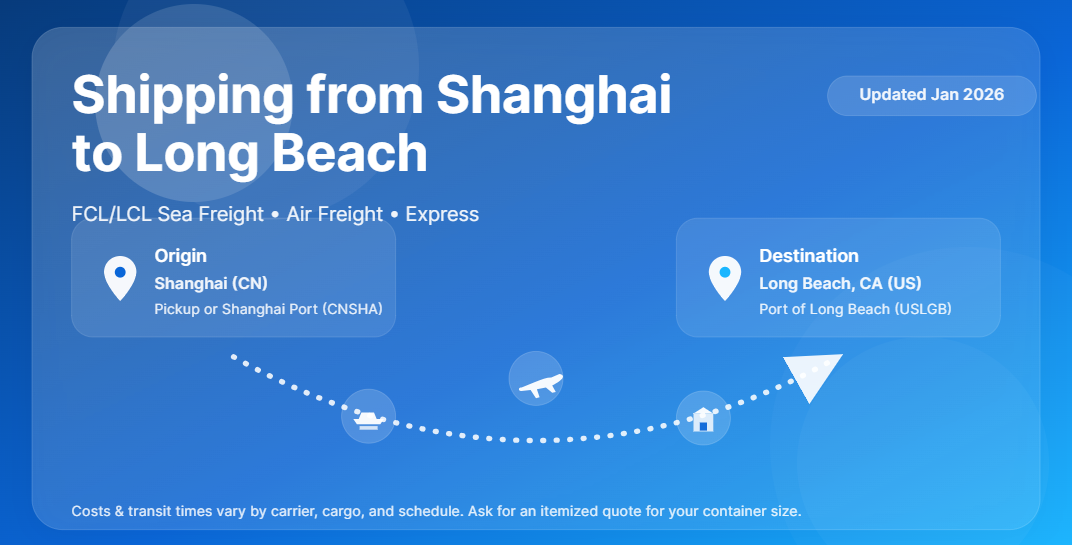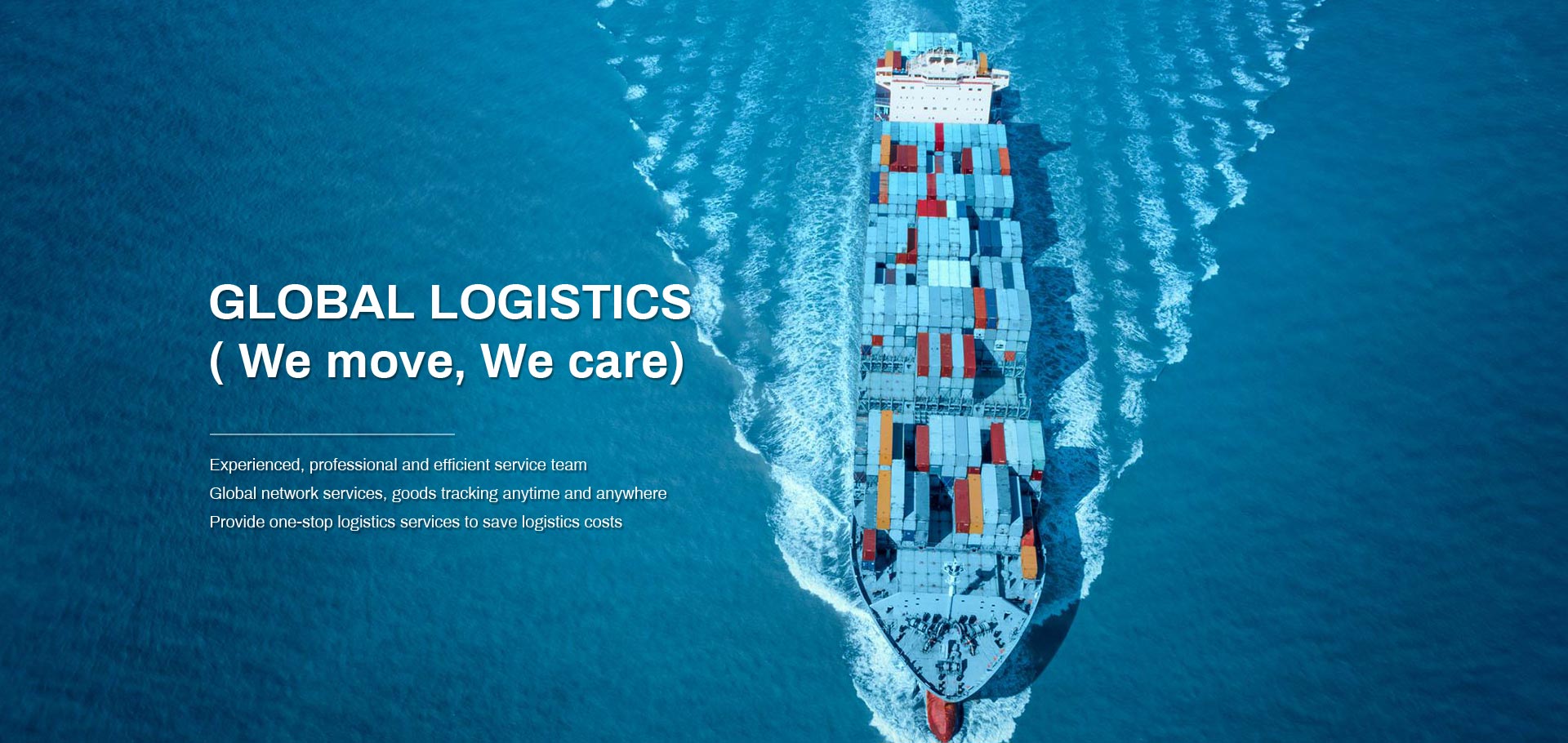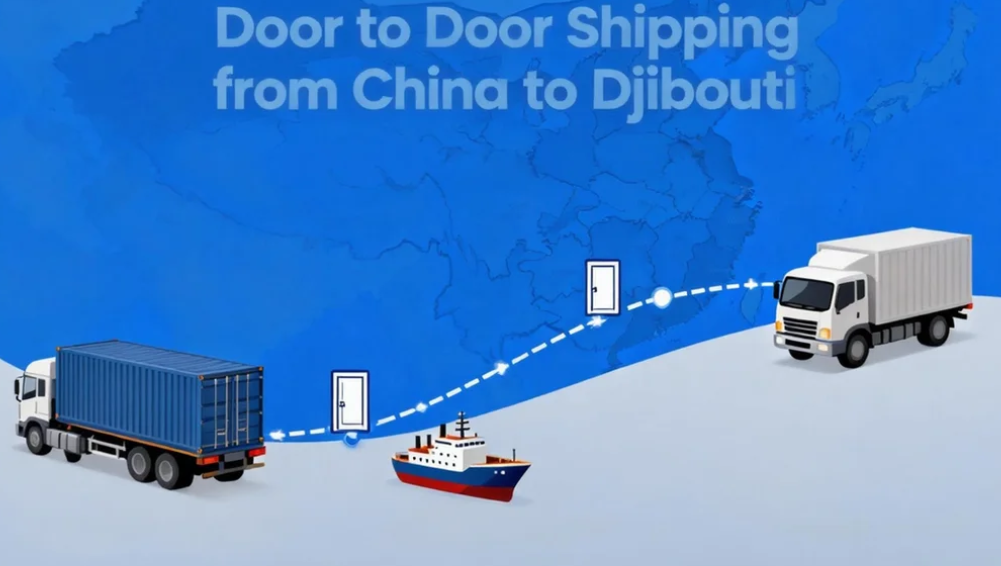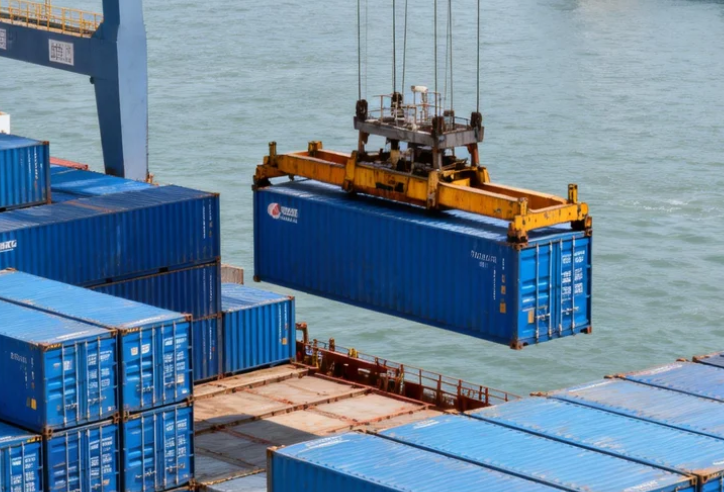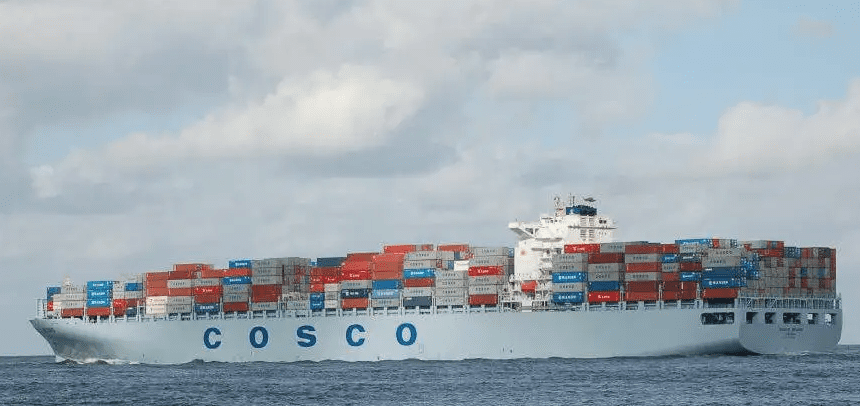Are you considering freight forwarding from China to Colombia but feeling overwhelmed by the logistics involved? You’re not alone! In this comprehensive guide, we will break down everything you need to know about partnering with a freight forwarder for your shipping needs. From exploring the various shipping methods—air freight and sea freight—to understanding customs clearance and costs, this article will equip you with the essential knowledge to navigate the complexities of China-Colombia trade successfully. Join us as we simplify the freight forwarding process for you!
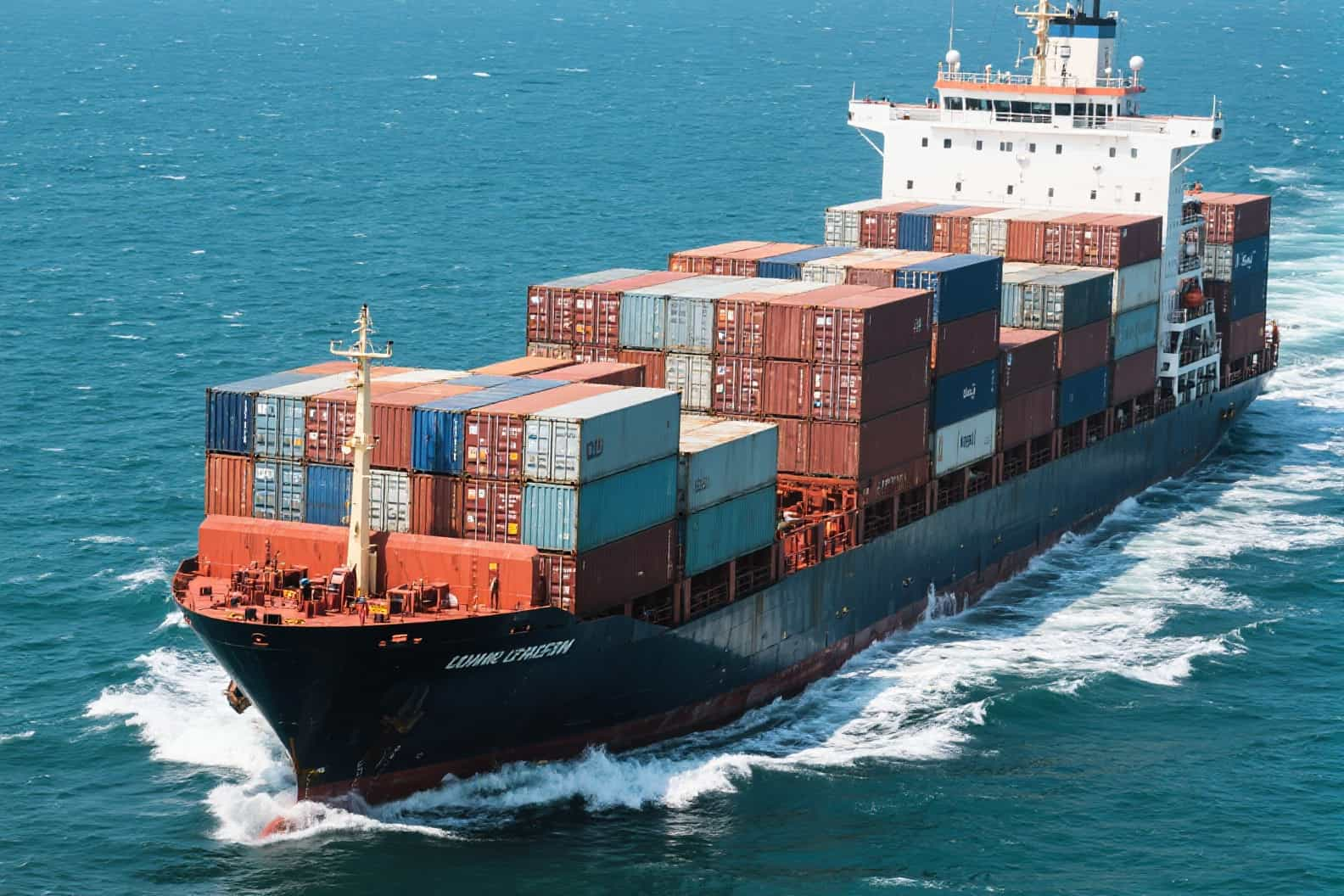
Understanding Freight Forwarding from China to Colombia
A freight forwarder acts as a logistics expert, managing the complex process of moving goods from China to Colombia. Their main responsibilities include organizing shipments, booking cargo space, arranging transportation (by air or sea), and handling all related paperwork. They serve as intermediaries between shippers and various transportation services, ensuring your cargo moves efficiently, securely, and in compliance with both Chinese export and Colombian import regulations.
Key tasks performed by a China-to-Colombia freight forwarder include:
- Route Planning: Selecting the most efficient path for your goods depending on urgency, cost, and cargo type.
- Carrier Selection: Negotiating with shipping lines and airlines for the best rates and service schedules.
- Cargo Consolidation: Combining shipments from multiple suppliers to reduce costs (especially common in LCL sea freight).
- Customs Documentation: Preparing and reviewing all necessary export and import documents to prevent delays.
- Cargo Tracking: Providing real-time status updates and proactive problem resolution.
- Additional Services: Offering warehousing, cargo insurance, packaging, and door-to-door delivery.
Advantages of Using a Professional Freight Forwarder for China-Colombia Trade
Working with a professional freight forwarder like Dantful International Logistics offers key benefits:
- Expertise and Experience: Navigating China-Colombia trade lanes requires knowledge of regulations, shipping options, and potential pitfalls. Professionals leverage their experience to streamline processes and avoid costly mistakes.
- Time-Saving: They handle all logistics and paperwork, allowing you to focus on your core business.
- Cost-Effectiveness: Through relationships with carriers, forwarders secure competitive rates and optimize shipment planning. For example, Dantful offers volume discounts and tailored solutions to lower your logistics expenses.
- Risk Management: From cargo insurance to compliance checks, reliable forwarders minimize the risk of loss, damage, or customs issues.
- One-Stop Solution: Companies like Dantful International Logistics provide integrated services covering ocean freight, air freight, warehousing, customs clearance, and more, ensuring a seamless shipping experience from origin to destination.
Comparing Shipping Methods: Air Freight vs. Sea Freight
Choosing the best shipping method from China to Colombia depends on your cargo’s urgency, budget, and volume. Let’s compare air freight and sea freight options.
Air Freight from China to Colombia
Air freight is the fastest shipping option, transporting goods from major Chinese airports (like Shanghai Pudong, Guangzhou Baiyun, or Beijing Capital) to major Colombian airports (such as El Dorado International Airport in Bogotá).
Pros:
- Speed: Transit times are typically 3–7 days, much faster than sea freight.
- Reliability: Frequent flights and fixed schedules reduce delays.
- Security: Lower chance of damage or theft due to less handling and shorter transit time.
Cons:
- Cost: Significantly higher than sea freight, especially for large or heavy shipments.
- Capacity Limitations: Not suitable for bulky or oversized cargo.
Best Use Cases:
- Urgent deliveries (e.g., electronics, fashion, medical supplies)
- High-value or time-sensitive goods
- Smaller shipments where speed outweighs cost
Example Table: Estimated Air Freight Transit Time
| Origin Airport | Destination Airport | Estimated Transit Time |
|---|---|---|
| Shanghai Pudong (PVG) | Bogotá (BOG) | 3–5 days |
| Guangzhou Baiyun (CAN) | Medellín (MDE) | 4–7 days |
| Beijing Capital (PEK) | Cartagena Rafael Núñez (CTG) | 4–7 days |
Note: Actual times depend on flight schedules, customs clearance, and other factors.
Sea Freight from China to Colombia
Sea freight is the most cost-effective choice for large shipments, offering Full Container Load (FCL) and Less than Container Load (LCL) options.
FCL (Full Container Load):
- You rent an entire container (20’ or 40’), ideal for large volumes.
- Lower per-unit shipping cost.
- Reduced risk of damage since goods are not handled with other cargo.
LCL (Less than Container Load):
- Your cargo shares a container with goods from other shippers.
- Best for small to medium shipments that don’t fill a full container.
- Slightly longer transit times due to consolidation and deconsolidation processes.
As you explore LCL and FCL options, you may find this guide on what is LCL and FCL in shipping helpful for understanding the differences.
Popular Service Routes:
- Origin Ports in China: Shanghai, Shenzhen, Ningbo, Qingdao, Guangzhou
- Destination Ports in Colombia: Buenaventura, Cartagena, Barranquilla
Table: Estimated Sea Freight Transit Times
| Origin Port | Destination Port | Transit Time (FCL) | Transit Time (LCL) |
|---|---|---|---|
| Shanghai | Buenaventura | 28–33 days | 32–38 days |
| Shenzhen | Cartagena | 30–35 days | 34–40 days |
| Ningbo | Barranquilla | 29–34 days | 33–39 days |
Additional Service Options by Dantful International Logistics:
- Door-to-door delivery
- Customs clearance assistance
- Cargo insurance
- Warehousing and consolidation
- OOG (Out-of-Gauge) freight for oversized cargo
- Breakbulk freight for non-containerized shipments
Choosing Between Air and Sea Freight
| Criteria | Air Freight | Sea Freight |
|---|---|---|
| Transit Time | 3–7 days | 28–40 days |
| Cost | High | Low to moderate |
| Cargo Type | Small, urgent, valuable | Large, non-urgent, bulky |
| Environmental Impact | Higher | Lower |
| Frequency | Daily/Weekly | Weekly/Bi-weekly sailings |
Selecting the right freight forwarder and shipping method is crucial for effective China-Colombia logistics. A professional partner like Dantful International Logistics ensures your shipment is managed cost-effectively, securely, and in compliance with all regulations. For tailored advice and a quote, contact our experienced team today.
Freight Shipping Costs and Pricing Factors
Understanding the cost structure when working with a freight forwarder from China to Colombia is crucial for effective budgeting and supply chain management. Shipping costs can vary greatly depending on the mode of transport, cargo type, and service level required. Here is a detailed breakdown of the most common cost components:
| Cost Component | Description |
|---|---|
| Freight Charges | Main cost for moving goods via air freight or sea freight between China and Colombia. |
| Origin Charges | Costs incurred at the Chinese port/airport (loading, handling, documentation). |
| Destination Charges | Fees at the Colombian port/airport, such as unloading and handling. |
| Fuel Surcharges | Variable costs based on fuel price fluctuations, especially for air and ocean shipments. |
| Customs Clearance | Fees for export customs in China and import clearance in Colombia. |
| Duties & Taxes | Colombian import duties, VAT, and other applicable taxes. |
| Insurance | Premiums for cargo protection during transit (highly recommended). |
| Other Fees | Storage, demurrage, documentation, and delivery charges if opting for door-to-door service. |
By working with an experienced provider such as Dantful International Logistics, you can receive transparent quotations that clearly outline each fee, minimizing unexpected costs.
Key Factors Affecting China-Colombia Freight Rates
Several factors impact shipping rates from China to Colombia:
- Mode of Transport: Air freight is faster but generally more expensive than sea freight.
- Cargo Volume and Weight: Rates are typically calculated per kilogram (air) or per cubic meter/20’ or 40’ container (sea).
- Shipping Route: Direct routes are often more cost-effective, though transshipment points can add both cost and time.
- Port Selection: Major Chinese ports (e.g., Shanghai, Shenzhen, Ningbo) and Colombian ports (e.g., Buenaventura, Cartagena) may have varying charges.
- Seasonality: Peak seasons (e.g., before Chinese New Year or Christmas) can see higher rates due to increased demand.
- Fuel Prices: Changes in global fuel markets directly affect surcharges.
- Customs and Regulatory Fees: Compliance with Colombian import regulations may introduce additional expenses.
Cost-Saving Strategies for International Shipments
To optimize shipping expenses for your China-to-Colombia supply chain, consider these proven strategies:
- Consolidate Shipments: Use LCL (Less-than-Container Load) services to combine smaller shipments, reducing per-unit cost.
- Plan Shipments in Advance: Avoid peak season surcharges by scheduling shipments during off-peak periods.
- Choose the Right Forwarder: Partnering with a reputable provider like Dantful International Logistics ensures access to competitive rates and efficient routing.
- Negotiate Service Options: Select appropriate service levels (e.g., port-to-port vs. door-to-door) based on your budget and timeline.
- Optimize Packaging: Efficient packing can reduce volume, helping to lower volumetric charges.
- Understand Customs Requirements: Proper documentation avoids costly delays and potential fines.
Estimated Transit Times When Shipping from China to Colombia
Transit time is a key consideration when choosing between air freight and sea freight solutions.
Air Freight Transit Times
Air freight is the fastest method for moving goods between China and Colombia. Typical transit times, excluding customs clearance and delivery to final destination, are as follows:
| Route | Estimated Transit Time |
|---|---|
| Beijing/Shanghai/Shenzhen → Bogotá | 3–7 days |
| Beijing/Shanghai/Shenzhen → Medellín | 4–8 days |
- Note: Actual transit time can vary based on flight availability, cargo handling, and customs procedures.
Sea Freight Transit Times
Sea freight is more economical for large shipments, but takes longer:
| Chinese Port | Colombian Port | FCL/LCL Transit Time |
|---|---|---|
| Shanghai | Buenaventura | 30–35 days |
| Shenzhen | Cartagena | 32–38 days |
| Ningbo | Barranquilla | 34–40 days |
- LCL shipments may require additional time for consolidation and deconsolidation.
- Customs clearance and inland transportation in Colombia can add 2–7 days to the total delivery time.
If you are interested in how these times compare to shipments moving from China to other South American countries, you might want to check out shipping times from China to Argentina.
Choosing the Right Shipping Method
- Air Freight is best for high-value, urgent, or time-sensitive cargo.
- Sea Freight is ideal for bulk shipments, large volumes, or when cost efficiency is the priority.
By working with a highly professional provider like Dantful International Logistics, you can receive tailored solutions that balance speed, cost, and reliability for your China to Colombia logistics needs.
For more information or to request a quote, visit Dantful International Logistics – your trusted partner in global freight forwarding.
Certainly! Here is an expanded, professional, and SEO-optimized section for your WordPress post, tailored to your guidelines:
Customs Clearance and Documentation for China-Colombia Shipments
Shipping goods from China to Colombia involves strict compliance with customs regulations on both ends. Working with an experienced freight forwarder from China to Colombia like Dantful International Logistics can ensure your cargo avoids unnecessary risks or delays. Here’s what you need to know:
Required Export and Import Documents for China-Colombia Shipping
Accurate and complete documentation is vital for the smooth movement of cargo. The typical documents required include:
| Document Name | Purpose | Issued By |
|---|---|---|
| Commercial Invoice | Details of transaction and value of goods | Exporter |
| Packing List | Itemized description of cargo | Exporter |
| Bill of Lading (B/L) | Evidence of contract and receipt of shipment | Carrier/Freight Forwarder |
| Certificate of Origin | Confirms country of manufacture | Exporter/Chamber of Commerce |
| Insurance Certificate | Proof of cargo insurance coverage | Insurance Provider |
| Import License (if required) | Authorization to import regulated goods | Colombian Authorities |
| Customs Declaration | Formal declaration for customs clearance | Exporter/Importer |
Failure to provide any of these may result in delays or penalties. Dantful International Logistics assists clients at every step, ensuring all necessary paperwork is in place and up to date.
Duties, Taxes, and Compliance with Colombian Customs
When importing goods into Colombia, shipments are subject to import duties, value-added tax (VAT), and other relevant fees. The main considerations include:
- Import Duties: Rates depend on the type of goods and their classification under Colombia’s Harmonized System (HS) code.
- VAT (IVA): Standard rate is 19%, but may vary for certain goods.
- Special Tariffs: Some products may require additional excise taxes, anti-dumping duties, or environmental surcharges.
Compliance also requires adherence to Colombian labeling regulations, health or phytosanitary certificates (for specific goods), and correct HS code usage. For up-to-date tariffs and trade regulations, see Colombia’s official customs website: Dirección de Impuestos y Aduanas Nacionales (DIAN).
Avoiding Delays: Common Customs Issues and Solutions
Delays at customs often result from incomplete or incorrect documentation, undervaluation of goods, misclassification of products, or non-compliance with Colombian import regulations. Here are best practices to minimize these risks:
- Double-check all documentation for accuracy and consistency.
- Use correct HS codes to avoid disputes or reclassification.
- Ensure labeling requirements (language, information placement) are met.
- Work with a professional freight forwarder like Dantful International Logistics to handle compliance and communication with customs authorities.
Dantful’s expert customs clearance team provides guidance, timely updates, and proactive problem-solving, helping clients navigate both Chinese and Colombian regulations efficiently.
Value-Added Logistics Services
Choosing the right freight forwarder from China to Colombia not only ensures timely delivery but also gives access to a range of value-added services that can optimize your global supply chain.
Warehousing, Packaging, and Cargo Insurance for China-Colombia Trade
Warehousing
Strategic warehousing in China and Colombia enables flexible storage and consolidation of goods before shipping. Dantful International Logistics provides modern, secure facilities that support:
- Short-term and long-term storage
- Cargo consolidation for LCL (Less than Container Load) shipments
- Inventory management and distribution
Packaging
Proper packaging protects goods during long-distance transit, especially for fragile or high-value items. Dantful offers:
- Customized packaging solutions
- Palletization and repacking
- Compliance with international safety standards
Cargo Insurance
International shipping always involves some risk. Cargo insurance provides financial protection against loss or damage during transit. Dantful Logistics offers comprehensive insurance plans tailored to the type of goods, value, and customer needs.
| Service | Benefit |
|---|---|
| Warehousing | Flexible, secure storage; supports consolidation |
| Packaging | Reduces damage risk; improves compliance |
| Cargo Insurance | Peace of mind; financial protection |
Delivery Options: Door-to-Door, Port-to-Port, and More
Choosing the right delivery term can impact both cost and convenience. The most common service options from China to Colombia include:
| Delivery Option | Description | Best For |
|---|---|---|
| Door-to-Door | Pickup from exporter’s site in China to final destination in Colombia. Includes all logistics and customs. | E-commerce, small businesses, time-sensitive shipments |
| Port-to-Port | Shipping from China’s port to Colombia’s port. Client arranges local transport and customs. | Experienced importers with local resources |
| Door-to-Port | Pickup from exporter to Colombian port. Importer handles local delivery. | Flexible importers |
| Port-to-Door | From Chinese port to the final address in Colombia. | Clients with export resources in China |
Dantful International Logistics offers all these options and customizes solutions to your shipment’s requirements, whether you are sending full container loads (FCL), less-than-container loads (LCL), or need specialized services such as OOG Freight or Breakbulk Freight.
For a deeper understanding of these delivery models, check out the detailed guide to door to door shipping from China to Colombia.
How to Choose the Best Freight Forwarder from China to Colombia
Selecting the right freight forwarder from China to Colombia is essential for a smooth, timely, and cost-effective shipping experience. Having a reliable logistics partner can make a significant impact on your supply chain, ensuring that your goods arrive safely and comply with all relevant regulations. Here’s what you need to consider:
Evaluating Experience in China-Colombia Shipping Routes
A freight forwarder’s expertise is best demonstrated by their familiarity with your trade lane. When shipping from China to Colombia, it is critical to choose a forwarder with proven experience along this specific route. Key questions to ask include:
- How many years has the forwarder managed shipments between China and Colombia?
- Does the forwarder have local agents or offices in both China and Colombia?
- What types of cargo have they handled, and are they knowledgeable about your specific goods or industry?
- Can they provide case studies or references from other China-Colombia trade clients?
Dantful International Logistics stands out as an experienced partner, seamlessly managing complex shipping requirements for global traders and adapting to changing regulations in both countries. Their expertise covers the major seaports in China (such as Shanghai, Shenzhen, Ningbo) and key Colombian ports like Buenaventura and Cartagena.
Checking Certifications, Licenses, and Industry Affiliations
A legitimate and professional freight forwarder must hold all relevant certifications and licenses. This ensures compliance, quality, and industry-recognized best practices. When evaluating providers, inquire about:
| License/Certification | Description | Importance |
|---|---|---|
| NVOCC (Non-Vessel Operating Common Carrier) | Legal ability to issue bills of lading and book cargo space | Essential for sea freight |
| FIATA Membership | Affiliation with International Federation of Freight Forwarders Associations | Global industry standards |
| IATA Accreditation | Approval by International Air Transport Association | Crucial for air freight |
| Local Business Licenses | Compliance with China and Colombia regulations | Legal operation |
| Customs Broker Certification | Authorized to manage customs clearance in destination | Avoids customs delays |
Dantful International Logistics is fully licensed and affiliated with multiple global and regional logistics associations, ensuring compliance and industry leadership.
Importance of Customer Feedback and Service Reputation
Customer reviews and reputation in the logistics industry can reveal much about a freight forwarder’s reliability, transparency, and customer service. Look for:
- Verified client testimonials
- Online ratings on platforms like Google, Trustpilot, or relevant logistics directories
- Case studies and references that demonstrate successful shipments
- Responsiveness and support throughout the shipping process
Dantful International Logistics is recognized for its high customer satisfaction, thanks to its tailored solutions, responsive support, and clear communication. Choosing a forwarder with a solid reputation reduces risks, helps avoid hidden costs, and ensures proactive problem-solving throughout your shipment journey.
FAQs
Q1: What services does a professional freight forwarder from China to Colombia provide?
A: Comprehensive freight forwarders like Dantful International Logistics offer Ocean Freight, Air Freight, Rail Freight, Amazon FBA, Warehouse solutions, Customs Clearance, Insurance, Door to Door, Out-of-Gauge (OOG) Freight, Consolidated Freight, and Breakbulk Freight services.
Q2: How long does it take to ship from China to Colombia?
A: Transit times vary depending on shipping method and route. Typically, ocean freight from major Chinese ports to Buenaventura or Cartagena takes 25–35 days (port-to-port), while air freight can take 3–7 days. Custom clearance and last-mile delivery may add to the total time.
| Shipping Method | Estimated Transit Time |
|---|---|
| Ocean Freight | 25–35 days |
| Air Freight | 3–7 days |
| Express Courier | 2–5 days |
Q3: What are the main costs involved in shipping from China to Colombia?
A: Costs include freight charges, fuel surcharges, port and terminal fees, customs duties and taxes, insurance, warehouse or storage, and additional value-added services. Your freight forwarder should provide a detailed cost breakdown.
For a seamless and professional shipping experience from China to Colombia, partnering with an established and reputable forwarder like Dantful International Logistics is essential. We provide end-to-end solutions, competitive pricing, and expert guidance to help your business succeed in international trade. For more information, visit Dantful International Logistics.

Young Chiu is a seasoned logistics expert with over 15 years of experience in international freight forwarding and supply chain management. As CEO of Dantful International Logistics, Young is dedicated to providing valuable insights and practical advice to businesses navigating the complexities of global shipping.



